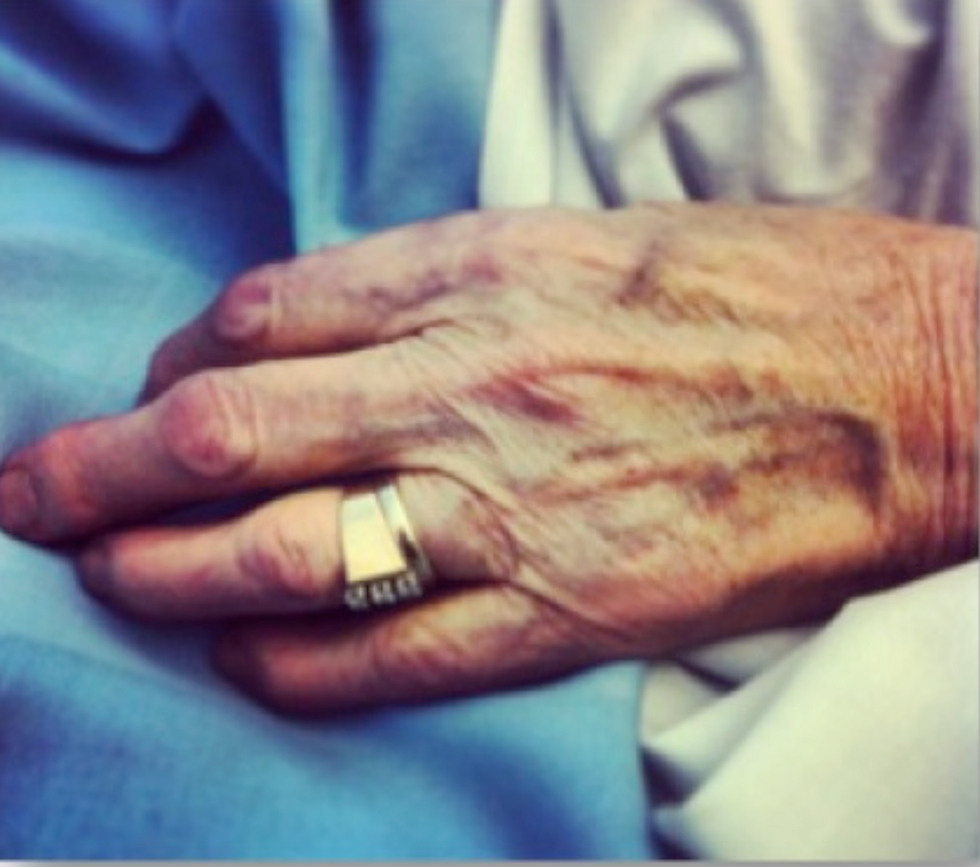Telling Your Truth
- Sue Robins

- Jan 20, 2021
- 3 min read

When my son Aaron was born 17 years ago with Down syndrome, I was dumped head-first into an ocean of advocacy. This was an extremely uncomfortable position for me to be in, for I’m a people-pleaser and conflict-avoider. Speaking up to shake up the status quo treads heavily on my good-girl persona.
Advocacy is Awkward
Feeling awkward and unliked is a necessary side-effect of advocacy. The more you speak out for something new, the more people will push back against you. Folks want to stay put in the status quo, no matter how awful it is for other people.
Over the years, I’ve been involved with advocacy for families with children with Down syndrome. All of these started with a letter, an email, a coffee: coordinating a new family peer support program, sitting on councils, working to get the Down Syndrome Medical Clinic established and funded in Edmonton, fighting hard when the government tried (unsuccessfully) to close that clinic down, and being part of a family and patient centred care movement at the Stollery Children’s Hospital. You get the idea – I don’t need to write out my entire advocacy CV. Every family has one.
Anybody who loves someone with a disability has been dragged into advocacy work, sometimes kicking and screaming, because the world for disabled folks is a harsh and hostile place.
Pandemic Times
Then along comes the pandemic. It has become cliché to say that the pandemic has shone a glaring spotlight in all the ugly inequities in the world. But the pandemic has shone a glaring spotlight on all the ugly inequities in the world.
It is one thing to vent on Twitter or Facebook. It is another thing to actually do something. But what can we do? Gathering in person around a kitchen table, as I would have done pre-pandemic, is out of the question. Due to underlying health conditions our family is isolated and alone. What I can do is write. I can tell our family’s story. (I'm proud that my husband and son have taken up advocacy too).
Over the past 10 months, many people have picked up their pen or opened their laptop lately to pound out a letter to their government representatives. Mostly you hear nothing back. I have written letters to our school district Superintendent (who graciously and immediately called me afterwards), our Provincial Medical Officer of Health (I got a dismissive auto-reply back, saying basically she and her staff were too busy to respond to me) and to my M.L.A., who generously passed my letter onto the appropriate Ministries.
I encourage you to write your story, tell your story, paint your story, photograph your story…express your truth in any way that makes sense to you, even if it never sees the light of day.
Advocacy 101
Here are few practical tips about writing an advocacy letter.
Tell your personal story, including the emotion about how it feels to be in this situation. This helps your reader connect with you and to gain an understanding of your perspective. And hopefully, you've planted a seed for compassion.
Include a short outline of your chronological story – what has happened and how it affects your family. Think about what parts of your story the audience needs to know most and focus on those elements.
Craft a clear statement of the key message you want your readers to understand. In my recent pandemic letters, this has been: Do not forget about medically-compromised students.
Repeat your key message in different ways. For me, I gave specific examples or anecdotes about how Aaron has been erased by the school district, Ministry of Education and Ministry of Child and Family Development.
Include concrete suggestions about what ACTION you want your readers to take after they read your letter. Is it something specific for your loved one? Or is it broader actions that would benefit people in the community instead? Be as specific as possible about what you want the solution to be.
Don’t shy away from expressing your passion and love. Be human. I have learned in my health care advocacy that it is effective to detail what went wrong, but also include ideas about how to make it right.
Keep Beating on Your Drum
Does all this letter writing make any difference? Well, I don’t know. I hope, as Mary Pipher says, if we share the truth of our lives through stories, it might just help open people’s hearts, including the hearts of government officials and bureaucrats.
I have to believe that stories matter, that my story matters, or I wouldn’t continue on. Change will happen only when our governments and systems become accountable to us, the people. Keep beating on your drum and I will keep beating on mine.

Interested in patient experience stories that boost compassion in health care?




I always appreciate your thoughtful comments Carolyn...THANK YOU.
"Feeling awkward and unliked is a necessary side-effect of advocacy. The more you speak out for something new, the more people will push back against you."
ARRRRRGGGH! Sue, you have nailed it with that observation - so true for all advocates, and all causes. Honestly, I don't know if I would have ever started advocating for women's heart health after my own misdiagnosed heart attack in 2008 if I'd had any clue of the backlash I was soon to receive from the most unlikely sources: the very physicians who care for heart patients.
The difference (besides the obvious hierarchy in medicine) is that the only people who can improve a system are within - and running - the system themselves.…